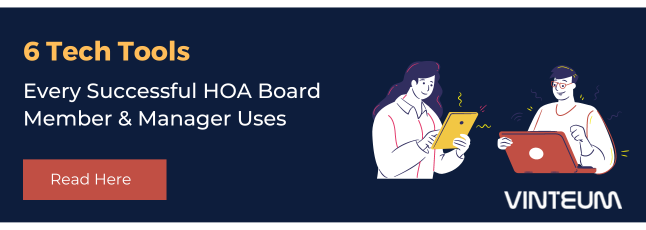As homeowners association (HOA) management becomes more digital and automated, AI-powered tools are emerging as game-changers. But what exactly is artificial intelligence (AI)? How does it work, and how can AI transform HOA Management? In this article, we’ll explore AI’s benefits, risks and how it can optimize HOA management. You’ll also discover how ChatGPT can assist board members and property managers in their daily operations. By the end, you’ll have a clear understanding of whether AI is a worthwhile investment for your community.
What is AI, and How Can It Improve HOA Management?
Artificial Intelligence (AI) is a technology that makes machines smart and capable of learning to perform tasks that usually require human intelligence. This includes answering queries, making decisions, translating languages and much more. AI has the potential to analyze vast amounts of data and identify patterns and trends that might be difficult for humans to spot on their own.
However, many people are concerned about the impact of AI on the workforce. There is a common fear that as AI becomes more sophisticated, it will lead to widespread job displacement or even job loss. Despite these concerns, AI is already being used in many industries to improve efficiency and productivity. For example, AI is used in healthcare to analyze medical images and help doctors diagnose diseases. In finance, AI is used to detect fraud and make investment decisions.
AI has a variety of potential applications in HOA management. One example is maintenance and repairs. Predictive maintenance systems can analyze data to predict when equipment and appliances may need to be replaced or repaired. This can reduce the need for reactive maintenance and help save money in the long run.
While AI is shaping the future of HOA management, stepping into the digital world doesn’t have to be complex. If you’re not ready to embrace AI-driven tools just yet, a powerful yet easy-to-use resident management software like Neigbrs can help you streamline communication, document storage, and daily operations—all without the learning curve of AI. Schedule a free demo and start trying.

Although AI has the potential to improve efficiency and productivity, it’s important to understand its limitations. AI is only as good as the data it’s trained on. AI requires a person to feed it data, that it learns from, so if you tell an AI machine that 2 + 2 = 5, it will work off that fact. That means that it’s important to ensure that the data you provide is unbiased and representative.
Additionally, AI tools should always be paired with human decision-making to ensure that important nuances are not overlooked. AI is intelligent but can make mistakes, Google’s AI chatbot made a mistake that cost Google $100 billion.

In summary, AI is a powerful technology that can potentially transform many industries, including HOA management. While there are concerns about its impact on the workforce, it’s important to approach AI implementation with a clear understanding of its potential and limitations.
AI tools are useful in HOA management. However, they’re new and probably not yet regulated by HOA-specific legislation. Therefore, their use may not be outlined in governing documents. To use AI tools responsibly and legally, it’s important to seek the advice of HOA attorneys. This way, your community can benefit from AI while upholding its legal and ethical responsibilities.
What is ChatGPT?
ChatGPT is an AI-powered conversational agent developed by OpenAI.
Put simply, it can understand human language and help with tasks like answering questions or generating responses. Think of it like having a virtual assistant that can understand what you’re saying and respond accordingly. It can be a valuable tool for board members and community association managers because it can quickly provide helpful information and insights.
How can you use AI tools such as ChatGPT in HOAs?
Providing insight and recommendations: ChatGPT can analyze data from various sources and provide insights and recommendations. This can help you gather information, enabling you to make informed decisions. For example, if a board member is interested in improving resident engagement within the association, they could ask ChatGPT for insights on how to tackle the issue. ChatGPT could analyze data on past events and activities, resident feedback, and other relevant information to provide recommendations on how to increase engagement and address apathy.
Identifying potential problems: ChatGPT can analyze data from resident feedback, maintenance requests, and other sources to identify potential problems and areas for improvement. This can help board members and managers proactively address issues before they escalate. For example, ChatGPT may detect recurring complaints about a particular amenity, such as a malfunctioning elevator or pool equipment, and suggest that the board repair or replace it before it becomes a more significant issue.
Help with vendor management: ChatGPT can be programmed to search for vendors based on certain criteria, such as location. For example, if a board member needs to find a vendor for a specific task or project, they can ask ChatGPT to search for local vendors who specialize in that area. ChatGPT can then provide a list of nearby vendors and their contact information, allowing the board member to quickly and easily reach out to them.
It is important to note that Chat GPT’s data only goes up to September 2021, so it doesn’t always provide accurate information. It may include vendors who have gone out of business. However, it can also analyze data on different vendors’ performance, such as response times, quality of work, and pricing. This helps HOA board members and community association managers make more informed decisions when selecting vendors.
Clearer communication: Effective communication is essential for the success of any HOA. Board members and HOA managers need to communicate with residents, vendors, and other stakeholders to keep the association running smoothly.
ChatGPT can help board members and managers revise text to write clearly and concisely. Let’s say a board member wants to send an email to residents about an upcoming event. They can input their draft into the system and receive suggestions for more effective language. The chatbot can identify redundancies, any awkward phrasing, and suggest alternative word choices. This can help board members and managers communicate their message clearly and effectively. It can also help with grammar and spelling errors, ensuring that messages are professional and polished.
Another great use is when preparing an HOA newsletter. It can suggest revisions to make the text more engaging. It can also offer ideas for topics and help ensure that the newsletter is informative and relevant to residents.
Additionally, ChatGPT can assist with language translation, allowing board members and managers to communicate effectively with residents who may speak different languages. This can be particularly helpful in diverse communities where multiple languages are spoken.
Final points: AI tools for HOA management
AI tools, like ChatGPT, can enhance HOA management by improving efficiency and productivity. It can be used for maintenance, identifying problems, vendor management, and communication with stakeholders. Implementing AI tools requires understanding their potential and limitations. Consulting with HOA attorneys is recommended to ensure legal and responsible use. AI, ChatGPT paired with HOA management software are valuable investments for community associations seeking streamlined operations.




